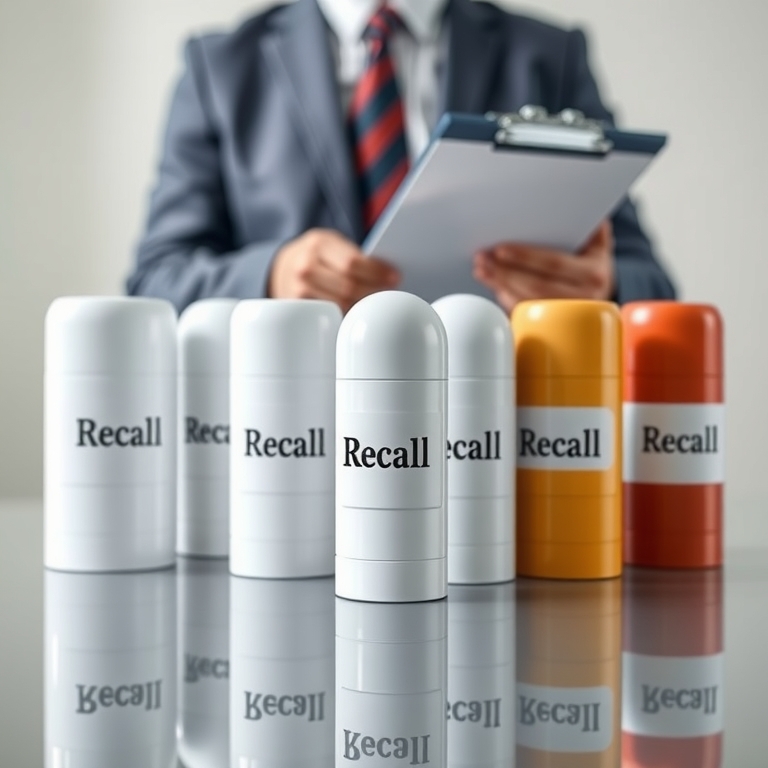In an unprecedented move that has rippled through the personal care industry, the U.S. Food and Drug Administration (FDA) has issued a recall of several popular deodorant brands after detecting the presence of benzene, a chemical compound known for its carcinogenic properties. This development has sent shockwaves across both the manufacturing sector and consumer markets, highlighting the intricate balance between product safety and consumer trust that companies must navigate.
Benzene, a volatile organic compound, is widely recognized for its use in industrial applications, such as the production of plastics and synthetic fibers. However, its presence in personal care products raises serious health concerns. The FDA’s decision to recall these deodorants stems from routine testing that revealed benzene levels exceeding the agency’s recommended limits for consumer products. The recall has ignited a flurry of activity within the agency, as officials work to determine the extent of the contamination and assess its potential impact on public health.
The recall underscores the FDA’s commitment to safeguarding consumer health and the rigorous standards it imposes on manufacturers. Though benzene is not an intentionally added ingredient in deodorants, its presence can be attributed to contamination during the manufacturing process or the degradation of other ingredients over time. This incident highlights the challenges faced by the personal care industry, where complex formulations and supply chain intricacies can sometimes lead to unintended consequences.
In the wake of the recall, the FDA has urged consumers to discontinue the use of affected products immediately and seek alternative deodorants that do not contain benzene. This advisory has left many consumers scrambling to identify safe and effective options, as they navigate a crowded market filled with a myriad of choices. Manufacturers are now under pressure to not only ensure the safety of their products but also to communicate transparently with their customers about the steps they are taking to address the issue.
The recall has also prompted a broader conversation about the regulation of personal care products in the United States. Unlike pharmaceuticals, which undergo stringent pre-market approval processes, personal care products are subject to less rigorous oversight. This has led to calls from consumer advocacy groups and health experts for more comprehensive regulations to ensure the safety of these everyday items. The FDA, for its part, has acknowledged these concerns and is reportedly exploring ways to enhance its regulatory framework to better protect consumers.
For manufacturers, the recall presents both a challenge and an opportunity. On one hand, they must address the immediate crisis by removing contaminated products from store shelves and reassuring customers of their commitment to safety. On the other hand, this situation offers an impetus for companies to innovate and differentiate themselves in a competitive market. Brands that can demonstrate a proactive approach to safety and transparency are likely to garner increased consumer loyalty and trust.
The financial implications of the recall are significant. Companies involved face not only the direct costs associated with the recall process, such as logistics and disposal, but also potential legal liabilities and reputational damage. In an era where consumer awareness and activism are at an all-time high, the stakes for maintaining brand integrity have never been greater. Analysts predict that the fallout from the recall could lead to a realignment of market dynamics, with some consumers opting to shift their loyalty to brands perceived as safer and more reliable.
In response to the crisis, some companies have already begun to implement more stringent quality control measures, including enhanced testing protocols and supplier audits. These steps are designed to prevent future occurrences of contamination and to restore consumer confidence. Additionally, several brands are exploring the development of new formulations that utilize natural and organic ingredients, in an effort to appeal to health-conscious consumers and mitigate the risks associated with synthetic compounds.
The recall has also spurred innovation in the realm of alternative deodorants. Natural and organic products, which have been gaining traction in recent years, are now poised to capture a larger share of the market as consumers seek safer options. Companies specializing in these products are reporting a surge in demand, as awareness of the recall spreads and consumers become more discerning about the ingredients in their personal care products.
While the immediate focus remains on addressing the benzene contamination, the broader implications of the recall are likely to resonate for some time. It serves as a stark reminder of the importance of robust regulatory frameworks and the need for companies to prioritize safety at every stage of the product lifecycle. As the personal care industry navigates this challenging landscape, the lessons learned from this recall could ultimately lead to a safer, more transparent marketplace for consumers.
In conclusion, the FDA’s recall of deodorants over benzene concerns represents a pivotal moment for the personal care industry. It highlights the critical role of regulatory oversight in protecting consumer health and underscores the necessity for manufacturers to uphold the highest standards of safety and transparency. As the industry moves forward, the emphasis on innovation and consumer trust will be paramount, shaping the future of personal care products and influencing consumer behavior for years to come.

Leave a Reply